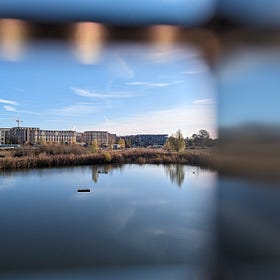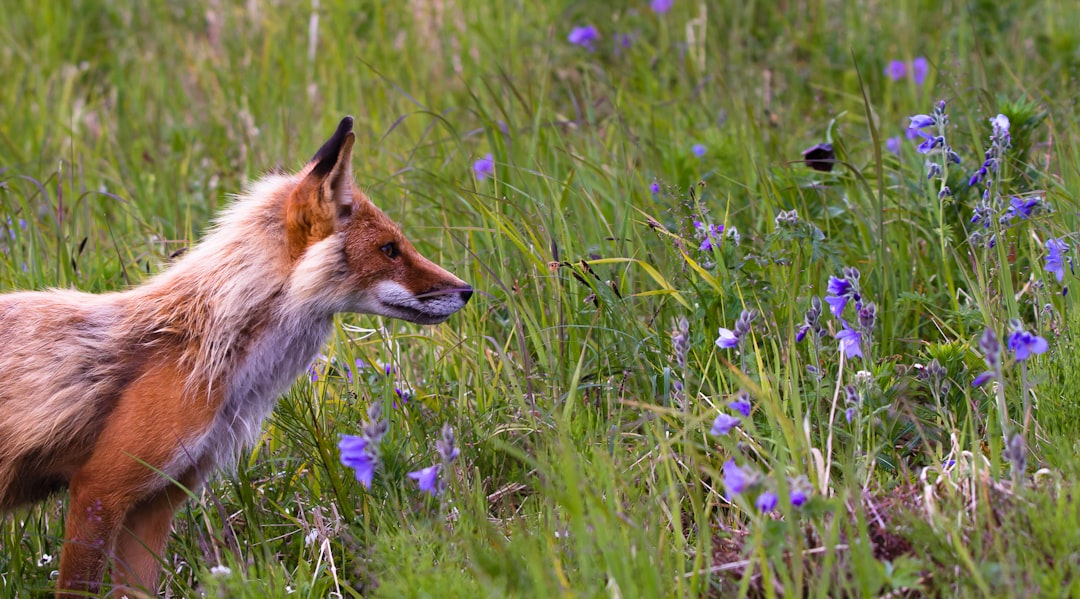THE FINAL SECTION of "Smaller-Scale Rewilding: A Practical Guide to Restoring Nature in Your Own Space"
'The Vision of a Global Movement:' - the last section of LettsSafari's guide to smaller-scale rewilding.
We’ve published weekly instalments of our guide to smaller-scale rewilding in LettsSafari+ and your inbox - section after section, week after week. Packed with amazing photography and immersive videos straight from our parks.
If you’re not already a paid member of LettsSafari, subscribe today. Get the amazing guide and help build more rewilding safari parks for the price of a cup of coffee a month.
The Final Section of LettsSafari’s Guide to Smaller-Scale Rewilding
The Vision of a Global Movement:
LettsSafari’s vision is essentially to mainstream rewilding on a mass scale, making it possible for everyone to engage. They often say “rewilding one tree, one animal, one park at a time” - it implies a building-block approach that eventually adds up to global change. Specifically:
A Rewilded Patchwork Planet: Imagine thousands of LettsSafari-like micro parks around the world, connected by millions of rewilded gardens and corporate spaces. That mosaic could function as a huge carbon sink and biodiversity reservoir, even as humans live among it. They’ve mentioned the idea of a “mass market adoption” of rewilding, where everyone becomes a rewilding expert. The end goal is a world where small wild spaces are ubiquitous - cities, suburbs, countrysides all dotted with them, creating continuity with larger wild areas. It’s a future where urban children grow up with wildflowers on their school grounds and know the names of butterflies, where farmers leave corners wild as a matter of course because it’s normal practice, and where businesses and governments incorporate rewilding into development plans (green roofs, wild parks, etc.) and their own green spaces however small.
Rewilding in New Housing Developments: Exploring the Opportunities at Brook Leys, Cambridge
As our towns and cities continue to grow, we face coming to terms with the fact that they will gobble up an increasing amount of the green spaces around them. Recently we were invited to visit Eddington, a growing suburb of the nation’s famous university town, and a space where urban landscapes are beginning to take over the once pleasant green surround…
Renewable Nature as a Norm: They liken rewilding to renewable energy – something to be deployed widely to fix climate issues. The vision is that rewilding becomes as normal as recycling. A global movement for smaller-scale rewilding means international sharing of ideas (what works for smallholdings in England might inspire something in India, adjusted for local flora and fauna). LettsSafari has ties via LettsGroup to incubating sustainable ventures, so likely they see rewilding as a key sustainable practice of the 21st century to invest in and propagate.
Community-Driven Conservation: A movement implies bottom-up energy. LettsSafari is building a base of ordinary people (subscribers, readers, volunteers) who are personally invested. The global aspect is that anyone anywhere could join that base. They already hint at inspiring beyond the UK pointing to Italy and Greece, and aiming to expand to other countries. If the model can work in different climates (maybe adjusting species but keeping principle of small patches and community support), it truly can spread. We could foresee “LettsSafari Kenya” focusing on community conservancies of small size, or “LettsSafari USA” linking backyard conservation across states. The idea of a global network of rewilded spaces is powerful - wildlife doesn’t see our political boundaries, so connecting efforts internationally helps migratory species and general resilience.
Developing National LettsSafari Parks as Eco Attractions Open to the Public: LettsSafari is currently building and nurturing a network of private LettsSafari parks and gardens, but they have the ambition to build 500+ acre national safari parks in the western world fully open fully to the public, starting in the UK. They believe that they have the know-how, the model, brand, network and desire to expand the understanding and awareness of smaller-scale rewilding into branded, eco attractions. This would enhance their already established digital model and supercharge the rewilding movement. The thought of an African style safari park in England is exciting indeed.
Support from All Sectors: The movement includes individuals, NGOs, companies (they have a GreenTeam package for businesses), and hopefully policymakers (some councils already do, but more could adopt rewilding-friendly policies as public support grows). LettsSafari often mentions working with the government and experts, hosting them to show the approach. The vision likely sees rewilding becoming part of government climate action plans (recommending every town to set aside 10% as wild, etc.). World Rewilding Day participation is an example of aligning with global initiatives.
Changing Culture: A global smaller-scale rewilding movement changes how people relate to land. It popularises the idea that unused or under-used land should be given back to nature, even temporarily (e.g., letting a field lie fallow as wild for a year or rotating crop fields with wildlife fallows). It could integrate with farming movements (agroecology, permaculture) to create hybrid systems that feed us and feed biodiversity. The ultimate vision: a greener, wilder planet where cities have forests within them, rural land is mosaic not monoculture, and extinction and climate change curves bend downwards because so many niches and carbon sinks have been restored.
Supporting LettsSafari matters because it helps realise this vision by fuelling one of the engines driving it. LettsSafari has momentum and a model that works; support ensures they can expand it and inspire others. It’s a conduit for turning individual concern into collective action - effectively bridging the gap between what one person can do and what an organised movement can accomplish.
As we come to a close, it’s clear that smaller-scale rewilding is not a small endeavour at all - it’s part of a grand solution, with LettsSafari as a key champion. By engaging with and supporting such pioneers, anyone can help turn the tide for our planet’s ecological future.
In the words of a LettsSafari supporter: “If you only subscribe to one thing this year – subscribe to LettsSafari. They really are doing something about climate change – something we can all get involved in!”. That sentiment captures why backing LettsSafari and kindred efforts is so important: it’s a chance to be part of the solution and part of a hopeful movement for change.
Conclusion
Smaller-scale rewilding, as championed by LettsSafari, is a powerful, scalable approach to restoring nature in the spaces we live and work. By understanding its principles, learning from case studies, and taking practical action in our own communities, we can each contribute to a mosaic of wild habitats that collectively address the biodiversity and climate crises.
LettsSafari’s pioneering work has shown that “when it comes to environmental restoration, bigger isn’t always better” - in fact, countless small efforts, linked together, may well be the key to a greener, more resilient future. So whether you rewild a flowerpot or a farm plot, you are part of this definitive guide’s story – turning the page to a new chapter where humans and wild nature thrive side by side, one small patch at a time.
Coming next week - LettsSafari’s guide to smaller-scale rewilding in summary form.
Get more LettsSafari updates and wildlife photos from our twitter. And read the latest posts at the LettsSafari + website.









